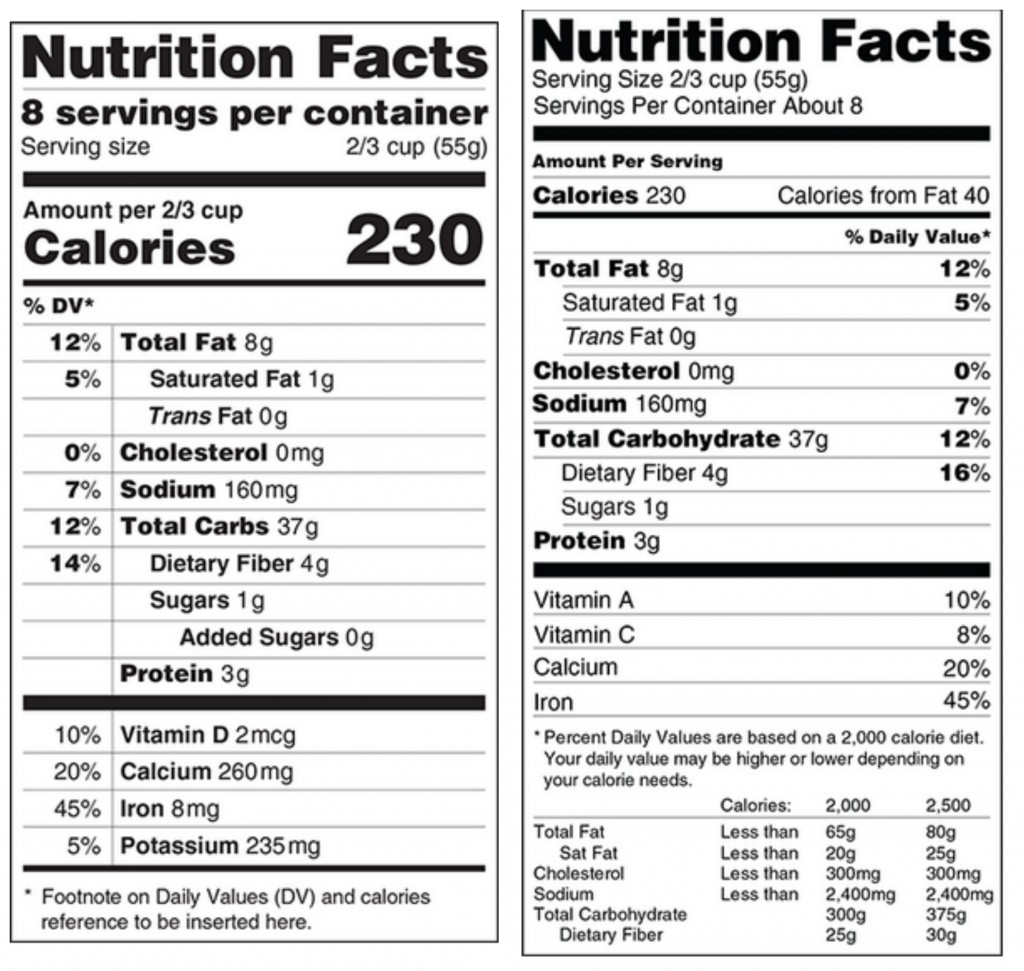For a Healthy Office, Read the Label: Vitamin D Boosts Employee Productivity
Employers who care about workplace wellness, employee satisfaction, or just plain old attendance rates should take note: the FDA is updating its nutrition labels, and making room for some new featured nutrients. Your office lunches and catering plan should be prepared to follow suit.

Image source: fda.gov
Late last week, Michelle Obama announced the FDA’s proposal for changes to nutrition labels on food packaging. For the first time in 20 years, the ubiquitous label is getting a face-lift. There’s a larger emphasis on calories, accurate serving sizes, and added sugars… as well as two new players in the “good-for-you” nutrients section: potassium and vitamin D.
On the labels, these two nutrients bump off two star players in the vitamin game: vitamin C and vitamin A. Why? Essentially, according to the FDA, because few Americans consume enough potassium and vitamin D, while the more prevalent (and popular) vitamin C and A aren’t as much of a concern.
This is where employers should start paying attention. This shift matters to you. Research has shown in the past that proper nutrition makes a difference in energy levels and productivity at the workplace, and there’s very good reason to think that vitamin D may be key to healthier, happier employees.

Image source: Flickr User HealthGauge
No disrespect to potassium, the other new kid on the nutrition-label-block: it’s considered a vital nutrient in the current landscape of American obesity and chronic disease mostly because of its link to regulating blood pressure. Vitamin D, for its part, has a host of health benefits: building bones and muscle strength, reducing risk of heart disease and cancer, and even boosting weight loss efforts.
Getting enough vitamin D also has been linked with increased immunity — that is, better odds of fighting off a bout of the winter flu or common cold. It’s also been reported that getting enough vitamin D drastically decreases the risk of depression (one of the chief ways we absorb vitamin D is through sunlight, leading some researchers to hypothesize that a lack of vitamin D may be the culprit behind the “winter blues” or seasonal affective disorder).

Image source: Flickr User Leonid Mamchenkov
We don’t often talk about office productivity and vitamins, but in the case of vitamin D, there’s clearly a laundry list of factors that directly affect work performance and absenteeism. Workplace wellness programs have skyrocketed in popularity over the last decade due to rising health care costs, which are ascribed to chronic illnesses like heart disease and obesity — vitamin D can help reduce the risks of those diseases. Vitamin D deficiencies can lead to increased risk of illness and depression, which in turn leads to missed work days — in fact, a 2013 report estimates that depression costs U.S. employers $23 billion in absenteeism each year.
Vitamin D isn’t a cure-all for illness or depression, of course, but the science suggests that consuming enough of it can make a real difference. After all, if the FDA is rearranging the nationwide nutrition labels to make room for it, it’s probably worth your time to consider the impact vitamin D could have on your office.

Image source: Flickr User WordRidden
Start small: make sure your office lunches, catering table, and break room are packed full of vitamin D powerhouses. Only certain foods are naturally rich in vitamin D, like salmon, canned tuna, and sardines, as well as egg yolks. Many common breakfast foods are fortified with vitamin D, a practice that began in the days when rickets was a national health crisis: look for milk, orange juice, yogurt, and cereals enriched with vitamin D for healthy office breakfasts.
Serve your staff well by sharing knowledge alongside office meals: after all, workplace wellness isn’t just about gym passes or yoga classes. And when it comes to providing the healthy meals that you can use as a conversation starter about nutrition, Waiter.com is in your corner.